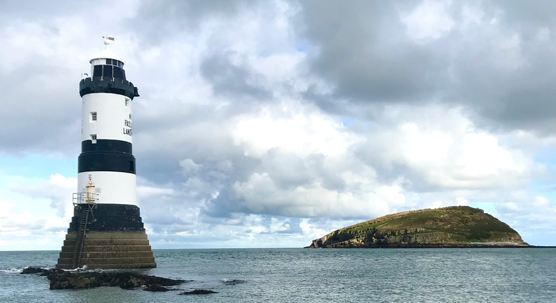
© Hermanni Kaartokallio
Marine and coastal ecosystems are under unprecedented change globally, mainly attributed to already recognized human-induced factors such as overexploitation of ocean resources, climate change and environmental pollution. Besides and within these large-scale threats, also new and poorly recognized factors affecting coastal and marine ecosystems are emerging.
A research article on possible new threats to coastal and marine biodiversity “A global horizon scan of issues impacting marine and coastal biodiversity conservation” was published in the journal Nature Ecology and Evolution in July 2022. The article has received attention widely in the social and news media.
The work was led by the University of Cambridge and involved 30 experts in coastal and marine ecosystems. The group consisted of scientists, experts in marine conservation and other practitioners from 22 countries and six continents. From Finland, Hermanni Kaartokallio, Leading Scientist of the Finnish Environment Institute, took part in the work.
The purpose of the work was to identify issues relevant to the biodiversity, functioning and conservation of marine and coastal ecosystems during the next 5–10 years.
“It was truly interesting and rewarding to be part of this future outlook in the team of top experts especially because the presented views were so diverse”, Hermanni Kaartokallio said. “We all got to propose issues which were then ranked in a three-stage process.”
“The result of the work is the list of 15 most important issues. The issues are linked to diverse threats to marine ecosystems we need to be very conscious of. It is important to recognize their impact in research, environmental protection, marine resource management and policymaking.”
Some issues identified are linked to the use of marine resources, e.g., deep-sea brine pools host unique organism communities which may fall prey to extraction of lithium mineral.
Ocean warming changes the nutritional value of fish and can depauperate equatorial ecosystems
Overexploitation of fish stocks is a well-recognized threat which, according to the group, may be extended to fish stocks living in deeper ocean layers. These mesopelagic fish dwell in 200–1,000 m depths and are not currently exploited. They are not suitable for human consumption but can be utilized as fish fodder in aquaculture. The threat is not limited to the mesopelagic fish stocks but also their ecosystem services. Mesopelagic fish are an important part of the oceanic biological carbon pump transferring biological carbon from the surface to the deep ocean.
In warming oceans and seas, the nutritional value of fish is declining, e.g., by changes in fatty acid composition. Altered nutritional value can affect both humans and other species depending on fish as their primary food source. Ocean warming can also depauperate equatorial ecosystems as species are forced to migrate north- and southwards from too warm waters.
The list contains also issues which can be seen having primarily positive impact on biodiversity conservation. These include new technologies like soft robotics and improved tracking methods that may enhance research on species and ecosystems and thus advance their conservation.
According to Hermanni Kaartokallio, some issues presented were novel and thought-provoking even for a marine scientist like him. “For example, the potential pollution from massive battery production required by the green transformation was a new concept to me. I was not aware of the significant risks of battery recycling and end-of life solutions. Some issues, like the risks associated with new biodegradable plastic materials in marine environments are close to my own current research and I was delighted that the group found them significant as well.”
Top 15 emerging issues affecting ocean biodiversity:
Ecosystem impacts
- Wildfire impacts on coastal and marine ecosystems
- Coastal darkening
- Increased toxicity of metal pollution due to ocean acidification
- Equatorial marine communities becoming depauperate (lacking variety) due to climate migration
- Altered nutritional content of fish due to climate change
Resource exploitation
- Untapped potential of marine collagens and their impacts on marine ecosystems
- Impacts of expanding trade for fish swim bladders on target and non-target species
- Impacts of fishing for mesopelagic (middle-depth) species on the biological ocean pump
- Extraction of lithium from deep-sea brine pools
Novel technologies
- Co-location of marine activities
- Floating marine cities
- Trace element contamination compounded by the global transition to green technologies
- New underwater tracking systems to study non-surfacing marine animals
- Soft robotics for marine research
- Effects of new biodegradable materials in the marine environment
References:
Inquiries:
-
Hermanni Kaartokallio, Leading Scientist, Finnish Environment Institute, e-mail: firstname.lastname@syke.fi